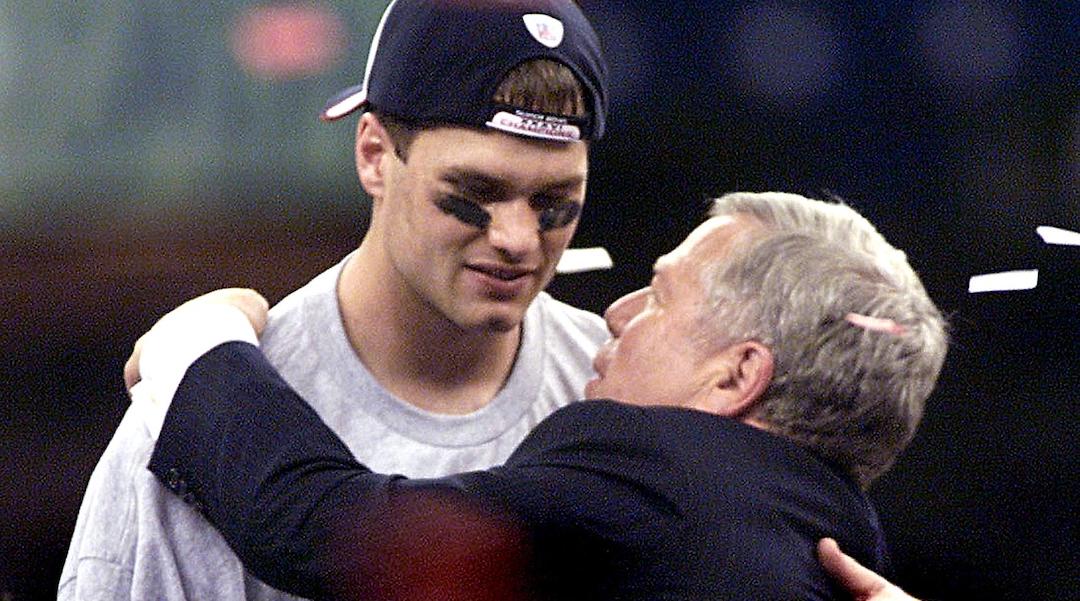Robert Kraft may or may not have said a Shehecheyanu prayer when his New England Patriots scored the game-winning field goal in Sunday’s Super Bowl, but there was no mistaking the elation of this Jewish businessman and philanthropist.
He nearly leapt through the glass window of his skybox at the Superdome in New Orleans as the clock ticked down and the 20-17 victory over the heavily favored St. Louis Rams brought the team its first Super Bowl title.
Kraft’s passion, evident throughout this week’s celebratory events, is not limited to football. Indeed, his presence — and philanthropic endeavors — has resonated far beyond the Patriots’ front office.
Along with his wife, Myra, Kraft has been heavily involved in Jewish and non-Jewish projects throughout the area.
And the Krafts’ Jewish involvement extends beyond Boston to New York and Israel, where they have invested in study programs, absorption of Ethiopian Jews — and a football stadium.
“Bob and Myra are truly an amazing combination,” said Barry Shrage, president of Boston’s Combined Jewish Philanthropies and a longtime friend of the family.
“They are two folks who are committed to all of the citizens of Greater Boston and the world, but they also have a strong connection and commitment to Israel and the Jewish people.”
In 1989 the Krafts, in collaboration with Combined Jewish Philanthropies, introduced the Myra and Robert Kraft Passport to Israel Fund.
The fund helps children involved in Jewish studies take an educational trip to Israel sometime between their sophomore and senior years of high school. To date, thousands of students have taken advantage of the trips to Israel that the Krafts help provide.
In addition, the Krafts have been active in developing the sister-city relationship between Boston and Haifa.
In 1998 they participated in the renovation of an after-school enrichment center that assists in the absorption, education and integration of Haifa’s Ethiopian community.
Aside from their work with the Ethiopian Jewish community, the Krafts’ impact and presence can be felt across the State of Israel.
Kraft is the primary shareholder of Carmel Container Systems, Israel’s largest packaging plant.
In 1997, he invested $40 million in a plant in Caesarea in order to provide his company, which employs 700 people, with the most advanced technology available.
In 1999, Kraft brought his love of football to Israel in the form of a new stadium, Israel’s first American football stadium.
Kraft Stadium, at the northern end of Sacher Park in Jerusalem, is used to accommodate the Jerusalem-based American Touch Football in Israel league.
Currently in its 13th year, the league runs a 33-team, 500 player league in Israel’s capital.
At the time of the groundbreaking, the league president, Steve Leibowitz, commented that “this will be the start of an American sports revolution in Jerusalem.”
Closer to home, the Krafts have worked to promote interfaith relations. Among other things, they created the Kraft-Hiatt Fund, a joint endowment fund through which gifts to Holy Cross and Brandeis University are used to encourage a greater understanding between Christians and Jews.
Shrage said of his friend: “Robert always says that his investment in Israel and his commitment to the Jewish people is a result of his upbringing.”
Kraft’s father, Harry Kraft, was a highly respected leader in the Jewish community of Brookline, a Boston suburb.
Myra Kraft, a 1964 Brandeis graduate and the daughter of Boston philanthropist Jacob Hiatt, has been a trustee at Brandeis since 1988. She also sits on the board of directors of Combined Jewish Philanthropies, is on their Overseas Committee and chairs the Israel Program Committee.
Beyond the Jewish world, Robert Kraft serves on the executive committee of the Dana-Farber Cancer Institute and serves on the board of overseers of the Boston Symphony Orchestra.
He is also a trustee of Columbia University, his alma mater, and serves on the board of directors of the Harvard Business School, where he received his master’s degree.
In April 2000, Kraft gave an $11.5 million gift to Columbia University for the establishment of the Robert K. Kraft Center for Jewish Student Life.
At the time, Kraft said the basement facility for Jewish students had not changed from the time he began Columbia in 1963 to when his son David entered in 1991.
“For a school like Columbia University in New York City, with the number of Jewish students, it is very important that there would be this kind of facility. I just thought it was time to help.”
Said Richard Joel, president and international director of Hillel: The Foundation for Jewish Campus Life, “You only have to listen to what Mr. Kraft said when he accepted the Super Bowl trophy to understand what matters to him — faith, family and country.
“It is no wonder that he and Myra are deeply committed to a values agenda. We are delighted to count them among our leadership.”
Kraft’s Jewish identity has even occasionally trickled into his position as owner of the Patriots.
On Sept. 22, 1996, he asked that the kickoff of a game between the Patriots and the Jacksonville Jaguars be changed to avoid a conflict with Yom Kippur, which started at sundown that evening.
Kraft requested the change so Jews, including himself and his family, could see the entire game before the start of Kol Nidre services that night.
JTA has documented Jewish history in real-time for over a century. Keep our journalism strong by joining us in supporting independent, award-winning reporting.
The Archive of the Jewish Telegraphic Agency includes articles published from 1923 to 2008. Archive stories reflect the journalistic standards and practices of the time they were published.




